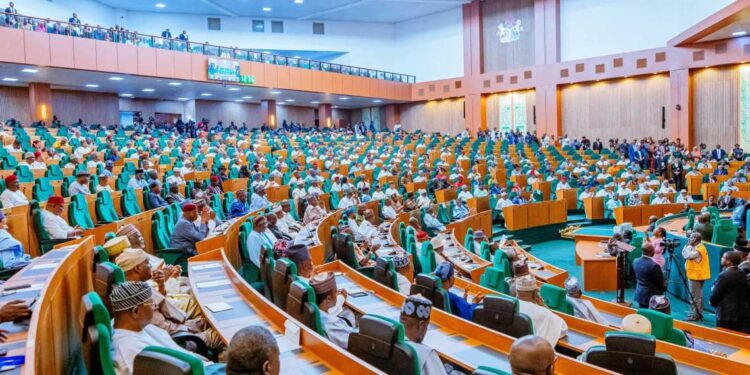The House of Representatives has unveiled ambitious electoral reforms that would consolidate Nigeria’s five major elections into a single voting day in 2027, marking a significant departure from the current staggered election system.
The comprehensive Electoral Act 2025 bill, which passed second reading under the sponsorship of Bayo Balogun, Chairman of the House Committee on Electoral Matters, would empower the Independent National Electoral Commission to conduct presidential, senatorial, House of Representatives, governorship, and House of Assembly elections simultaneously.
The proposed legislation seeks to repeal the existing Electoral Act No. 13 of 2022 and introduces sweeping changes to Nigeria’s electoral framework, including substantial financial requirements for political participation.
Under the new provisions, political associations seeking registration as parties would pay a mandatory N50 million administrative fee, while campaign spending limits would be strictly enforced with presidential candidates capped at N10 billion and governorship aspirants at N3 billion.
The bill establishes a tight electoral calendar, requiring elections to occur between 210 and 30 days before current officeholders’ terms expire, while election petitions must be resolved within 90 days of filing.
A notable innovation addresses the frequent conduct of by-elections by allowing political parties to nominate replacement candidates when lawmakers resign or die, provided submissions reach INEC within 60 days. This change could significantly reduce electoral costs and administrative burden.
Campaign financing faces new restrictions under the proposed law, with individual or entity donations capped at N500 million. The legislation also criminalizes false affidavits and candidate misrepresentations, imposing penalties of up to N10 million in fines or imprisonment.
Legal proceedings would operate under compressed timelines, with petitions required within 21 days of result declarations and pre-election suits within 14 days of contested actions. Appeals must conclude within 60 days, while courts would be prohibited from halting elections pending dispute resolution.
Technology integration features prominently in the reforms, retaining the Bimodal Voter Accreditation System while allowing voters to present downloadable identification with QR codes alongside traditional voter cards.
The bill mandates dual transmission of results both electronically and manually from polling units to collation centers, with violations carrying minimum N500,000 fines or six-month imprisonment for officers.
Internal party democracy receives significant attention, requiring party register submissions 30 days before primaries and barring political appointees from serving as delegates or convention candidates.
Judicial oversight would be strengthened through provisions allowing candidates to challenge false affidavit information, with courts empowered to disqualify both candidates and sponsoring parties for constitutional violations.
To discourage frivolous litigation, the legislation imposes penalties up to N10 million on petitioners and legal counsel pursuing cases outside recognized election contest grounds.
Special voting arrangements would accommodate security personnel, INEC officials, observers, journalists, and ad-hoc staff through designated pre-election voting dates.
The proposed reforms represent the most comprehensive electoral overhaul in recent Nigerian history, potentially transforming the country’s political landscape through simultaneous elections, enhanced technology use, and stricter financial controls.
If enacted, the Electoral Act 2025 would fundamentally alter how Nigeria conducts elections, potentially reducing costs, improving efficiency, and strengthening democratic processes through enhanced oversight and accountability mechanisms.



















